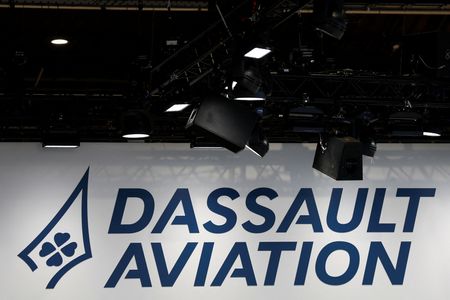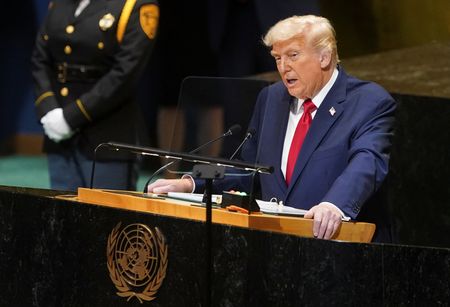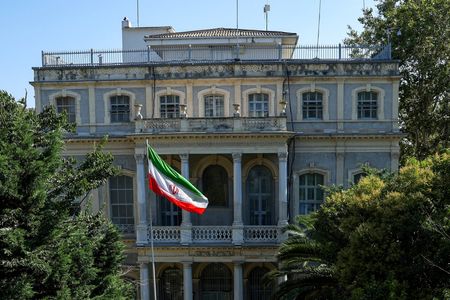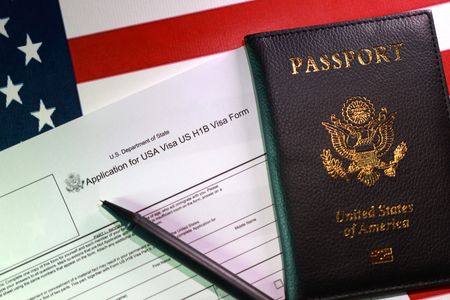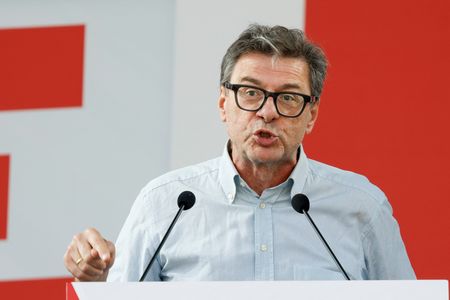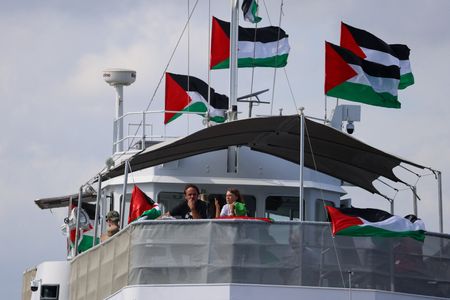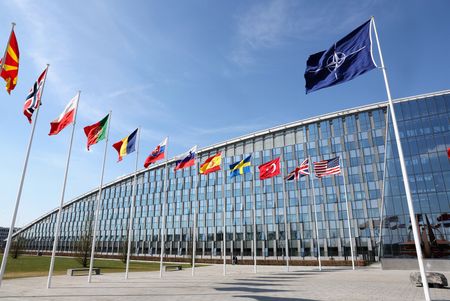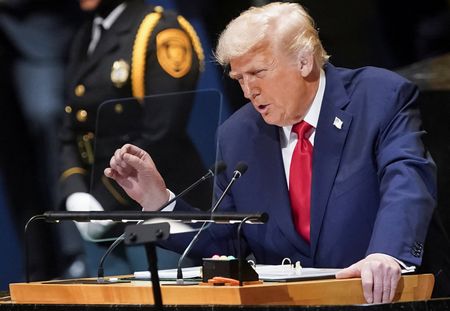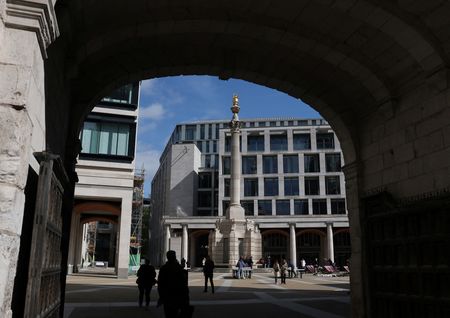By Tim Hepher
CERGY, France (Reuters) -The head of Dassault Aviation said on Tuesday the French planemaker had the capability to develop a new fighter jet alone and challenged Germany to do the same in the latest sign of tensions threatening to blow apart a shared European project.
France, Germany and Spain are working on futuristic fighters designed to fly alongside armed drones, but the 100-billion-euro ($118 billion) project has been plagued by rifts between Dassault and Airbus, which represents both Madrid and Berlin.
Germany has blamed Dassault for blocking the next phase of the so-called FCAS project, which involves building an airworthy demonstrator, by demanding sole leadership.
GERMANY CAN GO IT ALONE IF IT WANTS, DASSAULT SAYS
A prominent member of the German parliament’s defence committee last month raised the prospect that Berlin could quit FCAS and told Reuters the government must decide quickly.
Politico and the Financial Times last week reported that Germany was exploring alternatives with both Britain, host to the rival GCAP international fighter project, and Sweden.
Asked about the dispute at the opening of a parts factory for current-generation Rafale warplanes, Dassault CEO Eric Trappier said: “The Germans can complain, but here we know how to do this. If they want to act on their own, let them do so”.
Asked if Dassault had the ability to build a so-called sixth-generation fighter independently, Trappier said “yes,” but added this would be a decision for the French government.
“We know how to do it all from A to Z; we have demonstrated it for more than 70 years,” Trappier told reporters, speaking at the plant which also builds parts for Falcon business jets.
‘BEST ATHLETE’
French President Emmanuel Macron and then-German Chancellor Angela Merkel launched the FCAS project, also known by its French initials SCAF, in 2017. Spain joined two years later.
French industry sources have said tensions came to a head with the arrival of Madrid, which doubled Airbus’ weight in the programme and left Dassault outvoted on everyday decisions.
German sources, however, have accused Dassault of trying to dominate the project and keep most interesting work in France, disrupting efforts to split the work equally.
Trappier said Dassault was arguing for clearer control of the core crewed fighter component of the project, while granting Airbus similar room for manoeuvre in the parts of the wider combat system for which it has responsibility.
“We are totally open to co-operation including with the Germans, but we are just asking for one small thing: give us the capacity to drive the programme,” he said.
“I won’t accept that three of us are sitting round the table deciding all the technical aspects of developing a high-level aircraft. I want it to be the ‘best athlete’ who decides. That doesn’t mean we run everything, far from it,” Trappier said.
German Chancellor Friedrich Merz said in July that France and Germany should stick to existing workshare agreements.
Trappier said he was talking with the head of Airbus’ defence business, but no compromise had been found. He declined to put a deadline on the talks.
Airbus said it remained committed to the success of the FCAS/SCAF project and to all agreements struck so far.
($1 = 0.8478 euros)
(Additional reporting by Sabine Siebold. Writing by Makini Brice. Tim Hepher. Editing by Bernadette Baum and Mark Potter)

